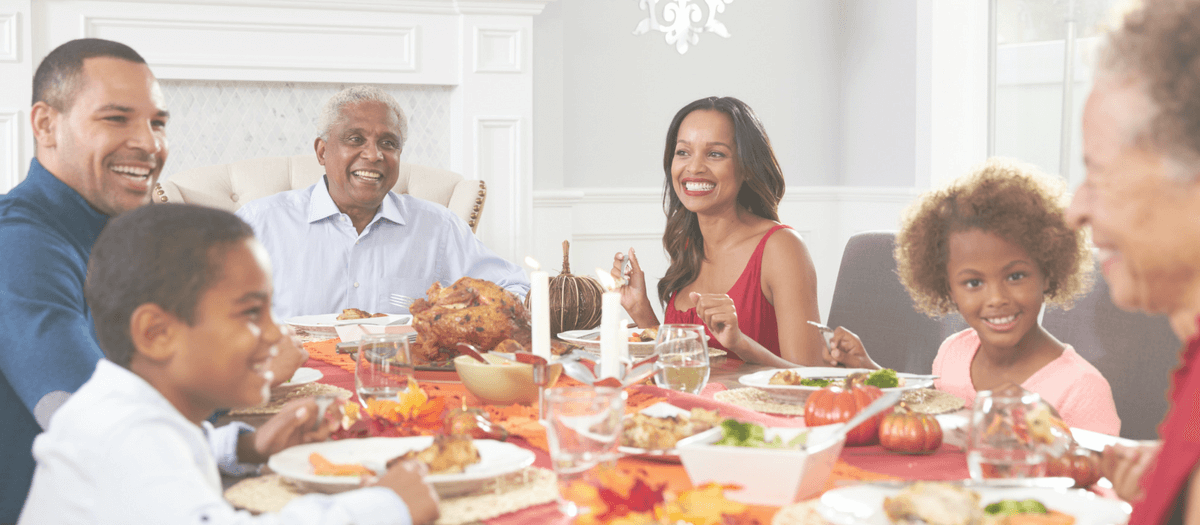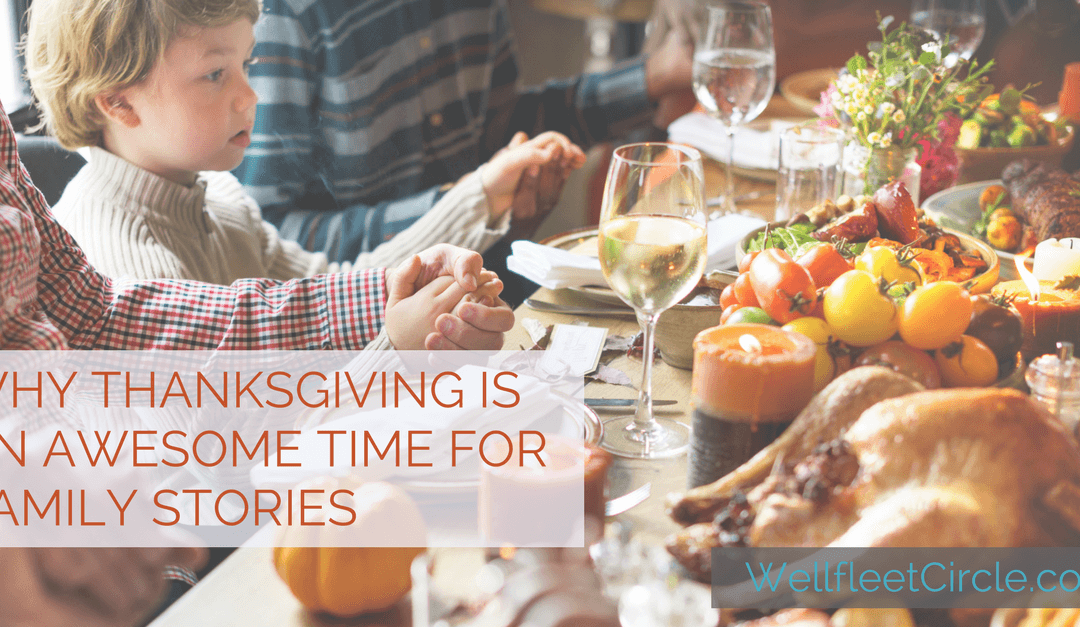Children who know more about their family tend to have greater resilience and do better when challenges arise. Their self-esteem and happiness tends to be higher. Knowing family stories helps children feel like they are part of something bigger, and that seems to help a lot.
Family stories can happen at any time—over the dinner table, in the car on the way to school, at bedtime. Thanksgiving and other holidays give the opportunity to get a wider range of stories and to answer questions that you might not think to ask regularly.
For example, you can ask grandma how she met grandpa or ask Uncle Lou about his stuffing recipe. Ask about holiday traditions—why you have duck instead of the traditional turkey or eat pie before dinner. Talk about the objects you use, Aunt Lua’s china, neon napkin rings that somebody made in kindergarten, the ugly gold turkey candlesticks.
Do these kinds of stories matter? They do. They show connections. These stories are reminders of where your family has been and connects younger generations to older ones.
Not all family stories are happy ones. That’s OK. Children learn from both the ups and downs of their family. And if your family doesn’t gather together for the holiday, consider swapping a few family stories—what you used to do as a kid for the holidays, for example, or why you made a certain dish—with the friends you gather with.

How to Share More Family Stories
Some of the best family stories come up organically. You tell the story behind the objects as you set the table, or explain to a guest why your family always says, “Cheese biscuits” at the end of grace. But there are other family stories that take asking.
These are a just a few questions to ask:
- What was your favorite part of Thanksgiving (or another holiday) when you were a kid?
- Where did you and your spouse meet?
(Personalize this one—Where did you meet Nonny? How did you meet Auntie Gwen?) - Where did you grow up? What was it like?
- What was my mom or dad like as a kid?
You can ask these questions yourself or encourage your kids to ask questions. (Sometimes a grandparent or other adult will answer a child when they brush you off.) Ask as everyone settles in to eat or save the questions for dessert. It can feel simply conversational or more like a new tradition of learning about family, whatever works best at your Thanksgiving table.
Family stories are your heritage. Each family has a history that no other family has. If you’re interested in the role of storytelling in your own family legacy, you’ll love my free resource 5 Questions to Ask at the Table. By telling your stories and sharing them, you keep your history, tradition and ancestors alive, and build connection within your family and across generations.

